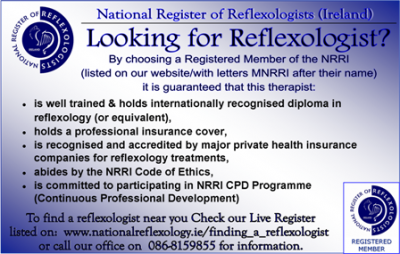LOOKING FOR REFLEXOLOGIST? >>CLICK HERE>>

REFLEXOLOGY FOR CATS
This healing modality isn't just for people. It can also do wonders for your feline companion.
reflexology
f you've ever had reflexology, you know something about its health benefits. But have you ever considered giving it to your kitty? As a cat lover and certified reflexologist, I have long had an interest in how this modality can be applied to our feline friends.
Reflexology is a cross between massage and acupressure. It's based on the theory that the feet, as well as the ears and face of a person or animal, contain a perfect map of the body. In other words, they mirror the body. By using specific finger, thumb and hand techniques to apply pressure in these three areas, you can positively affect the body's glands, organs and structures. Reflexology improves circulation around specific organs as well as overall blood and lymphatic flow, helping with nutrient absorption and waste removal. This in turn has a positive effect on the immune, endocrine (hormonal) and nervous systems in the body.1
Putting theory into practice
As I began researching the subject of reflexology for cats, I discovered no books had been written about it, although several holistic animal health experts recommend it. "Hand and foot reflexology, widely used in humans, has application in dogs and cats, too, for there are important energy points on the paw," writes C. J. Putotinen in The Encyclopedia of Natural Pet Care.
Ten years ago, I began practicing reflexology on my two kittens, Matisse and Morandi, and on the animals of my clients and friends, with surprising success. I then mapped out the specific reflex points on the feline paw, face and ears. During this exploration period, a few people trivialized the idea - why should reflexology work on cats? My reply was always the same: do we know if reflexology works on humans? The answer is yes, according to the millions of people who have benefited from this modality. So why would it not apply to cats too? Humans and animals share similar anatomy and physiology and have identical energy centers and pathways in their bodies. We also deal with many of the same health challenges and experience similar emotions and stresses in our daily lives.
What can it do for cats?
For cats, the main benefits of reflexology are to support general health and reduce stress.
1. Reflexology may help lessen the impact that modern living has on a cat's health and longevity. Animals have a lower tolerance to the chemicals and toxins in our environment, yet they inhale or absorb them on a daily basis. Toxins can also accumulate in the body as a result of what they ingest. Many animals eat the equivalent of a fast food diet since so much commercial pet food is filled with additives, preservatives, salt and sugar. Consuming this type of food can lead to detrimental health problems in the long run. Together with a natural diet, reflexology is a great way to detoxify and tonify organs through improved circulation.
2. Cats also experience stress - in fact they have a lower stress threshold than humans do. Stress contributes to 85% of all major illnesses and plays a crucial part in nearly every condition a veterinarian treats.2 Healing tends to slow down or become impossible when we or our animals are under stress. Reflexology is a fantastic way to reduce unwanted tension in the nervous system.
Getting started
For some cats, reflexology can take time to get used to. Practice when your cat is at rest, and begin with his face and ears before progressing to the paws. In my experience, most cats will prefer front paw contact. Patience is essential - keep sessions very short at first, then gradually increase their length.
• For stress and anxiety, I highly recommend stroking the ears. Stroking the tips of the ears is particularly good for shock. The ears help release endorphins, those feel-good chemicals similar to morphine, so this is particularly useful for stressful events such as moving house, Fourth of July fireworks and visits to the vet.
• To try face reflexology, stroke the area between the eyes in an upwards direction towards the head. This promotes relaxation, hormonal regulation and left brain/right brain balance.
• A good way to begin a paw reflexology session is to massage the inside lower leg and paw, which correspond to the spine. This is good for lower back and hip discomfort but can also help the whole body function better, since all the nerves that come off the spine connect to every important structure, gland and organ in the body.
These techniques will give you a good introduction to reflexology. If you wish to delve more deeply into this modality, consider taking a course. Just keep in mind that the focus of any reflexology course will be on humans, not cats. Check with local natural healing practitioners for their recommendations.
Reflexology offers a reciprocal exchange of love and healing that rewards both the giver and the receiver. When you offer reflexology to your cat, you help rebalance the human/feline bond and create a feeling of unconditional love and fulfillment.
1. See www.reflexologyresearch.net for information on specific studies.
2. Stein, Diane. The Natural Remedy Book for Dogs and Cats. The Crossing Press, 1994.


 Our Objectives
Our Objectives CPD Programme
CPD Programme






